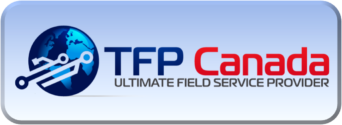Enterprise resource planning (ERP) is a business process management software platform that collects and interprets mountains of data in real-time. Having access to this actionable information provides valuable insight into your customers, supplies, business partners, and remote workers—all of which can help a business understand its clients better and make more informed decisions.
Unfortunately, a number of misconceptions about ERP solutions persist. And they could be holding your business back from being more efficient, effective, and profitable.
Below are five of the most popular myths about implementing ERP services.
Implementing ERP Service Is Only for Big Firms
One of the most popular myths is that an online ERP platform is only for big companies. This is completely wrong! One of the best things about using an analytical software tool like ERP is that it can be adopted by businesses of any size, including new start-ups.
In fact, an online ERP solution can put small businesses on the same playing field as their largest competitor. ERP is a must-have analytical tool that brings a host of benefits to back-office functions related to technology, services, and human resources.
If anything, ERP solutions actually benefit smaller businesses more than larger ones. That’s because with small businesses, employees often do a number of different jobs. And keeping track of everything, at the best of times, is challenging.
On top of that, ERP software can be used for any industry. It doesn’t matter if you work in field service, manufacturing, retail, healthcare, or any other sector, ERP can make your business more transparent and competitive.
Implementing ERP Service Is Time Consuming and Very Costly
There is certainly an upfront cost with implementing an ERP software platform. But over the long run, it actually lowers your business costs and makes workflow more efficient. Meaning, the return on investment is high.
And, thanks to advances in technology, which includes mobile and cloud computing, ERP software is more affordable now than ever before.
How long it takes to implement an ERP solution is dictated by a number of different factors, including the size of a business, degree of customization, number of users, etc. The company that implements the ERP will hold planning meetings with you so you know exactly how long the entire process will take.
ERP, CRM, and SCM Are All the Same Service
Some small business owners chose not to use an ERP solution because they think it would be redundant, since they already use a CRM and SCM system and believe implementing ERP would be redundant.
But ERP, Supply Chain Management (SCM), Customer Relationship Management (CRM) are not the same. They are different systems that target different business processes.
CRM is more for dealing with customers and SCM keeps track of supply chain transactions. ERP though is an inclusive tool that helps with the ongoing management of the entire company. On top of that, businesses can customize and integrate their ERP with existing business applications, either separately or in combination, depending on company needs.
ERP Is Hard to Use
One popular myth is that ERP is complicated and hard to use and best suited for people with a technical background. Thanks to the cloud, ERP solutions are quite easy to use. The “cloud” simply refers to the Internet and the fact that the ERP data is located on off-site servers. It’s revolutionizing ERP.
Because of the cloud, small businesses can access their data from anywhere, at anytime. All anyone needs to access their businesses vital information is a wireless device, like a smartphone, tablet, or laptop.
Using a cloud-based ERP is like accessing a well-designed website. They have navigable, user-friendly interfaces that are easy to access and learn.
Best of all, ERP can grow to meet the needs of your business. Because everything is located in the cloud, it’s entirely scalable, you don’t need to purchase expensive hardware, purchase expensive service plans, or hire additional IT staff, you simply increase or decrease the amount of online storage you need.
ERP Can Be Handled by the IT Department
ERP is an inclusive, easy-to-use software system that gets used by everyone from executives, management, in-house employees, and remote workers. That means every aspect of the business has a role to play in the successful implementation and use of an ERP solution.
TFP Canada, Canada’s Ultimate Field Service Provider
If your company sells products or services and has employees, implementing a cloud-based ERP solution is something you should consider for your business. More and more small businesses are coming to realize the number of benefits of using a cloud-based ERP; 65% of companies with less than $50 million in annual revenue use ERP. If you want your business to be more streamlined, efficient, and nimble, contact TFP Canada.
Using the best technologies for web and mobile, we can help businesses automate and streamline their organizations complex business operations. Developed specifically with small and medium sized businesses in mind, our ERP software is easy to install, customizable, and use.
Plus, we offer a complete office management system that lets you put your business on autopilot, anywhere, and everywhere, allowing you to do what you do best—grow your business.
To learn more about TFP Canada and how our cloud-based enterprise resource planning (ERP) software can help automate your business, improve fleet management, and reduce costs, contact us at 647-612-3300 or by email at sales@tfpcanada.com.

